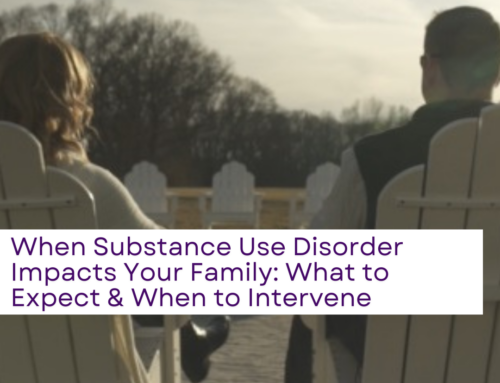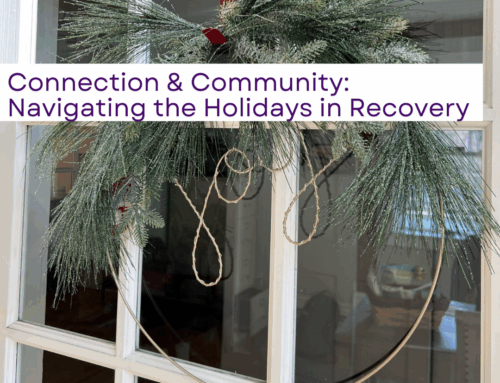
Individuals struggling with Substance Use Disorder experience intense feelings of guilt and shame. In recovery these feelings are worked through in treatment, therapy, and 12 step programs. But what happens when someone in recovery relapses, when the shame comes roaring back to the surface?
The danger in shame is that it keeps people struggling silent, and the only way to overcome shame is to talk about it. When relapse is coupled with feelings of shame, it can prevent those needing help from asking for it and continue on their journey of recovery.
This week we will share how shame was addressed in our community recently, and how celebrities have joined the conversation.
Causes of Relapse
It is important to understand common triggers in relapse so that those in recovery can be aware and learn to cope in healthy ways. These are the most common triggers that occur before a relapse:
-
Withdrawal– Many individuals relapse within the first week of stopping their substance use in order to avoid withdrawal symptoms, or thereafter due to post-acute withdrawal symptoms which can last for up to 6 to 18 months.
-
Mental Health– Oftentimes with Substance Use Disorder there are unaddressed or hidden mental health concerns such as anxiety and depression. It is important to address these with professionals so the proper care can be taken.
-
People– Being around the same people who are engaging in substance use while you are in recovery can trigger a relapse. One should not surround themselves intentionally with other people who are using alcohol or drugs unless they have a stable foundation in their own recovery.
-
Places– Any place that you may have associated with your substance use is a place you would ideally want to stay away from. The impacts of SUD on the human brain are so far-reaching that miniscule things may trigger an individual in recovery that may not even enter their conscious minds.
-
Things– Anything that you associate with your drinking or using is a thing to be mindful of. We are surrounded by “things” everyday, so staying vigilant in recovery is important if a craving sets in
-
Poor Self-Care– Proper self-care will make you feel better about yourself, and will be sending a message to yourself that you care about your well-being. Conversely, poor self-care sends messages to yourself that you don’t care about your well-being
-
Relationships and Intimacy– If not in a relationship entering recovery, it is encouraged that individuals abstain from these for their first year. This is because individuals who are newly sober may try to fill their void with an intimate partner, and if the relationship goes south it brings up overwhelming emotions
-
Overconfidence– No matter how confident you feel, it is encouraged to follow treatment recommendations and engage in recovery related behaviors and activities, and stay away from people, places and things that are not aligned with your sobriety.
-
Boredom and Isolation– When one is bored or isolated they are left with their own thoughts and emotions, which often do not want to be heard or felt. In active substance use time is filled with negative habits, so in recovery it is important to develop healthy habits that get you out of your head and connected with others
-
Uncomfortable Emotions– When in SUD, individuals mask emotions with substances so they do not have to feel them. Sobriety is the journey of sitting with these emotions, knowing they will pass, and doing something positive with them like reaching out to a fellow in recovery and talking about it. (Source)
At Herren Wellness we understand that relapse happens, and there is no shame in it. Educating our guests on triggers to be aware of and creating individual wellness plans helps us work with guests as they transition back into their lives.
Shame and Relapse
Each week at Herren Wellness our life coaches choose a theme which groups throughout the week build upon. This past week the theme was shame, and to start the week off the group was shown Listening to Shame by Dr. Brene Brown. The Ted talk had many points that were discussed in group, however the most important was the real antidote to shame is empathy. Through sharing our shame and talking about it, we loosen the power it has over us. This is crucial when talking about relapse. Whether an individual relapses continuously at 30 days sober, or experiences a relapse after years of sobriety, the shame can be all consuming. As Dr. Brene Brown states:

Dr. Brene Brown
“Shame corrodes the very part of us that believes we are capable of change”
Placing shame on top of relapse keeps people who are struggling quiet and in their substance use. Shame carries the inherent belief that there is something wrong with me. Oftentimes in 12 step meetings this is referred to as “terminal uniqueness”, the belief that the individual is the only person to experience relapse. In order to move away from shame and take the stigma out of relapse, it needs to be talked about… and some celebrities are up for the challenge.
In September of 2020 Dax Shephard shared on his podcast Armchair Expert that he had relapsed after 16 years in sobriety. His podcast struck a chord, particularly in the recovery community, because of his vulnerability and honesty shared with his listeners. Dax was reluctant to share his relapse openly, but when confronted by his co host Monica Padman, he knew it was the right thing for him to do:
“I can’t imagine having to admit that to other people and feeling as safe as I did that you guys wouldn’t hate me. I hated me at that point and so, to be able to tell you guys and feel unconditionally loved and that I would be accepted was really special, It saved my life.” (Source)
Singer and songwriter Macklemore (who is a fixture in the recovery community) was a guest on Dax’s podcast in April of 2021. He was not planning to talk about his recent relapse during the Summer of 2020, however since Dax was so open, it inspired Macklemore to share. From this honest conversation, opportunities have come his way: In the most recent issue of People magazine, they interview Macklemore on his relapse and how it has changed him moving forward:
To further his commitment to bettering the lives of those who suffer the same disease he does, Macklemore recently joined sparkling Yerba Maté beverage CLEAN Cause as an investor and creative director in order to support the personal mission. The company donates 50 percent of net profits to fund sober-living scholarships for individuals in recovery.
“I would not be where I am without that treatment. And I just so happened to have a dad that could help me pay for a treatment facility, So many people in America cannot afford rehab.”
Having public figures like Dax Shephard and Macklemore share openly about their struggles of relapse helps dismantle the stigma and shame. People feel less alone, and that their recovery journey can continue.

At Herren Wellness we recognize that relapse is sometimes a part of the recovery process, however what keeps individuals in the cycle of substance use is the shame caused by relapse. COVID-19 has created many obstacles for people in recovery, and as a result relapse rates have increased. Now more than ever we need to destigmatize relapse, and help those experiencing this to release the shame they feel and continue on their recovery journey.
“What we don’t need in the midst of struggle is shame for being human.” -Brene Brown
About Herren Wellness
When you come here, you are immediately connected with a thriving community of people at all stages of their recovery journey. We introduce healthy habits and routines centered around emotional, physical, and spiritual wellness that provide a solid foundation for rediscovering your interests, experiencing joy in sobriety, and building structure and routine.
We provide several alumni support communities, including a weekly recovery support group, monthly alumni meeting, and online alumni community you can access anytime. Your connection to Herren Wellness doesn’t end when your stay ends; we are there for you throughout your recovery journey.





